You’ve suffered a house fire. Hopefully, no one was hurt. You wonder why this happened to your family and then recall the advice you gave a friend who also suffered a fire: “Stuff can be replaced but lives cannot.” You’re thankful because it could have been worse. But now what happens? How long will my family and I be out of our home? Will things ever be the same again? You reflect on what happened.
It was a beautiful spring morning. You and your wife were sitting outside very early in the morning having coffee and discussing the usually busy day ahead, full of work, errands, and child activities. The kids are still nestled in their beds but will soon need to be woke. Suddenly you catch a whiff of smoke. You look down at the basement window and are horrified to see what appears to be smoke in the basement. You tell your wife to call 911 and you rush into the house to get the kids. You immediately smell smoke but thankfully there is no fire on the main level or upstairs.
You run up to the bedroom, throw the covers off, and grab your youngest kid. With some urgency, you don’t scream but forcibly tell your older son that we need to get out of the house as there is a fire downstairs. He’s heard that tone of voice before and bounds out of bed. With one groggy child in your arms and another trailing close behind, you all run out the door to your wife who is visibly relieved everyone appears to be OK. She says the fire department is on its way. Thank goodness the dog hasn’t hidden somewhere and runs out the door with you. Everyone is accounted for.
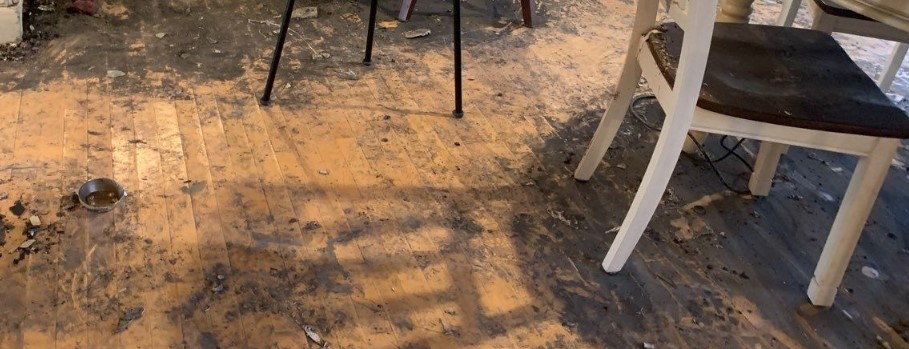
GET EVERYONE OUT & STAY OUT
You’re tempted to go back into the house to get a few things, but you remember the advice of a fire chief at a Fire Prevention Open House that you took the kids to last fall. The chief warned against anyone going back into a burning house. He said that fire can spread in seconds. Fortunately, you followed more of the chief’s advice and closed the door to your basement, which turned out to be a huge action to limit the fire’s spread.
It seems like an hour, but the first fire truck arrives in 12 minutes. An assistant fire chief pulls up soon after and then a second rig arrives. The chief asks you to clear the area and within minutes your house is surrounded by first responders. You knock on the neighbor’s door to alert them as to what is going on and ask them to watch your kids. Shocked, they immediately open their doors.
Meanwhile, the fire department is doing what they are professionally trained to do, make sure the fire is extinguished, and they work very efficiently. The chief informs you that you are responsible for contacting a company that can professionally board up the premises and protect it from intruders or curious kids who want to see the fire mess. He then informs you that the fire department will not leave until that is done.
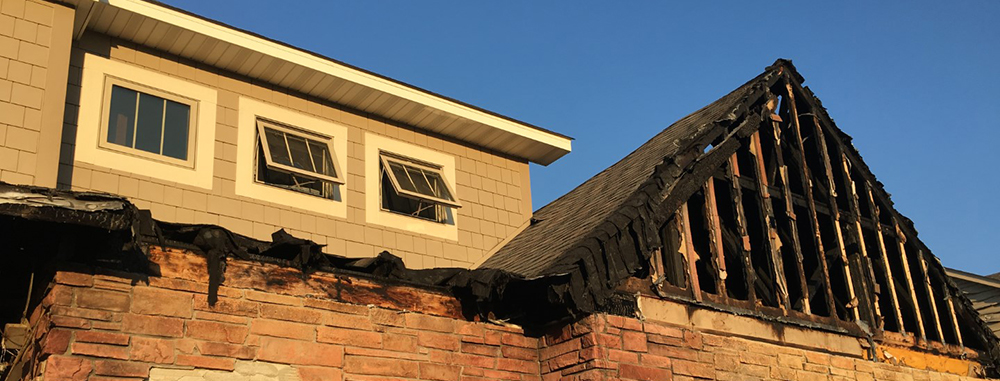
SECURE YOUR PROPERTY
Thankfully, you and your wife have your cell phones. Your first call is to your insurance agent, and the second to your boss. Fortunately, the agent believes in value-added service and just doesn’t ask you to call the 1-800 claims number. He recommends three vetted vendors to board up the premises and perhaps do the mitigation and repairs. You then call your boss. Your boss recommends the services of a friend who is in the restoration business. The company was one of the three your agent recommended so that seals the deal. You call the company. They say a crew will be dispatched within an hour to your house. You tell the chief who you have called to do the board up and he tells you that he knows the company well and that they are pros at what they do. You are very relieved you are in good hands.
Soon the contractor arrives and begins boarding up the process. You must sign an emergency services agreement and they begin unloading plywood. They work amazingly fast and efficiently, and in a couple of hours are finished. The chief then again says he is sorry about the fire and wishes everyone good luck. He then leaves, telling you if you have any questions or concerns to call him. You tell him firefighters are amazing people and thank him for his department’s often heroic efforts. The contractor then extends his sympathy and leaves you an information packet, saying that it is not their policy to high-pressure homeowners who have just had a traumatic loss. They ask if they can call you tomorrow after you have had the time to process everything. Impressed by their professionalism you give them permission.
CAUSE & ORIGIN INVESTIGATION
You ask the chief if he knows the cause of the fire. He informs you that the fire appears to have started in the basement bathroom and the culprit is most likely the bathroom fan. You are shocked. How can a fan cause a fire? The chief asks you how old the fan was. Your response: “I have no clue. The house was built in 1991, and the fan quite possibly could be original.” The chief asks if it had been cleaned recently. Your wife frowns and says in the 5 years they have owned the house, she never thought to clean it. “Hey, we both work, and have two kids heavily involved in sports,” she explains, somewhat embarrassed. The chief smiles, nods his head, and assures you that a lot of people are just like them, including his own family. “We do see some bathroom fan fires,” he explains. “But most people don’t think to regularly clean or blow out their fans. You’d be surprised how many people don’t clean out their dryer vents!”
The chief also adds that dust and dog hair debris may not have been the problem. “It could be electrical wiring,” he notes. “Sometimes rodents will chew on wires or the device simply ages and malfunctions.” You both look at each other in disgust, knowing you have battled mice in the basement. The chief then tells you the good news. People recover nicely from fires. Restoration companies can save a lot of valued personal items and even though insurance is meant to bring you back to pre-loss condition, in this case, you will get a lot of new fixtures, carpet, and possibly HVAC equipment. “Well, we were thinking about remodeling, but I guess a fire makes that decision for us,” you answer.
The chief also adds: “Now here is the bad news. By law, we must investigate the cause of the fire, so the Marshall must inspect the premises first to ensure there has been no arson committed.” He then assures you that the process is routine but will take a few days. You both nod in agreement, but just the mention of arson leaves you visibly upset.
Another contractor shows up out of the blue. How did they find out about the fire? He gets out of his truck and immediately launches into a high-pressure sales pitch. Appalled, you tell him you are not interested. You then stand with your wife hand in hand looking at your burnt and boarded house. Tears begin to well. Suddenly, your insurance agent shows up apologizing that she had two appointments, otherwise she would have been there earlier. You are thankful she made the effort to be there. “Our adjuster will be contacting you shortly and will inspect the property, once everything has been cleared by the fire marshal,” she says. “Our adjusters are extremely busy, but we hope you will be contacted soon.”
A PLACE TO STAY AND TEMPORARY NEEDS
The agent then mentions that temporary living quarters are covered by your policy and assures you that coverage loss limits should cover the loss. “It’s fortunate that we just reviewed your policy and limits recently,” she notes. “Adequate coverage is there. Of course, you will be out the $1,000 deductible. You might want to start looking for something immediately,” she adds. “For a few days, check yourself into a local hotel. Keep all the receipts for temporary expenditures.”
You go to your neighbor get the kids and drop them off at grandma’s house. Your mom and dad are horrified at the news but are glad everything is OK. They ask you if you’d like to stay there for a few days, and you agree. You then proceed to Target to pick up what you need to get through the few days. Fortunately, your wife brought her laptop and bag outside, and yours was in the auto. Other people who have suffered fires are not so lucky. You come back to the house hours later as you had to wait for prescriptions to be filled, but you’re thankful they were able to get them to you. You stop at the cash machine and load up. You get home realizing you forgot a couple of things, but thankfully grandma comes to the rescue. Totally exhausted, you put the kids to bed, have a cocktail, and wonder what the next few weeks will bring.
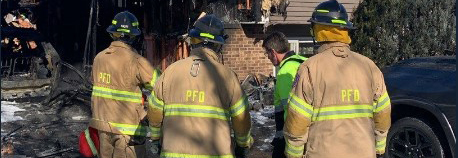
ESTIMATING THE STRUCTURE REPAIRS & CHOOSING YOUR CONTRACTOR
Fast forward, the local authorities clear the house for work and the contractor you felt comfortable with from the start offers you a contract to sign for complete restoration and reconstruction services. The insurance adjuster calls you and you arrange for him and the contractor to meet at your house. You drive the familiar route back home, but the sight of your burnt and boarded-up house makes you nauseous. Your contractor and adjuster are talking outside your house.
Everyone goes inside, and immediately you are sickened by the stench of smoke. You walk downstairs and are appalled by the damage. You realize that your kids sometimes sleep downstairs after movies and thank goodness they slept in their rooms that night. There is no power so the darkness inside makes things look worse.
Fortunately, your adjuster has worked with the contractor before and says you are in good hands. He explains his role in the process and authorizes the contractor to set up temporary power, do the demolition and commence the mitigation process. The first order of business for the contractor is arranging for all the clothing, linens, and wearables to be picked up and cleaned. You are shocked to discover that they can return salvageable items smoke-free.
The adjuster adds that he and the contractor will eventually agree on a written scope of repairs. He reminds you that you are entitled to the same quality of materials on all your furnishings, fixtures, and personal items that are destroyed. Upgrades, such as granite countertops, and any remodeling will be out of pocket for you. You pause. There is a lot for you and your wife to think about, but you’ll have to do it fast. You wonder where you are going to find the time.
PERSONAL PROPERTY
The adjuster then tells you that he will need an inventory of everything you own that cannot be salvaged. He’s seen your startled look before and tells you that he will be hiring a company to assist you in the process of doing the inventory. “They are pros at what they do, and they will make sure all your contents get accounted for, even the items you didn’t know you had,” quips the adjustor with a grin. He adds that the company makes the process of contents inventory much easier for the homeowner.
Your wife calls. Thanks to a referral from your insurance agent, she has found a townhouse rental locally that you can move into temporarily. You’re relieved. Your folk’s house has been great but even though it’s been a few days, things are getting strained for everyone. Your adjuster leaves, wishes you good luck, hands you his business card, and says to call him with any questions. You let out a big sigh, look at your contractor and say, “Where do we start?”
You both laugh and the contractor remarks, “I know it’s all very overwhelming now. Most people are very apprehensive and worried at this stage. Fortunately, our company does this for a living and are professionals. We have worked with many people like you and have helped them put their lives back together again. We will put this house back together again for you and it will be even better than before.” He explains that this will be a process, and the process takes a lot of time, more time than people have patience for. “But in the end, you will love your new home,” he adds. “There will be some things we can’t replace, but everything else will be brand new and fresh. And we guarantee that awful smoke odor will be gone.”
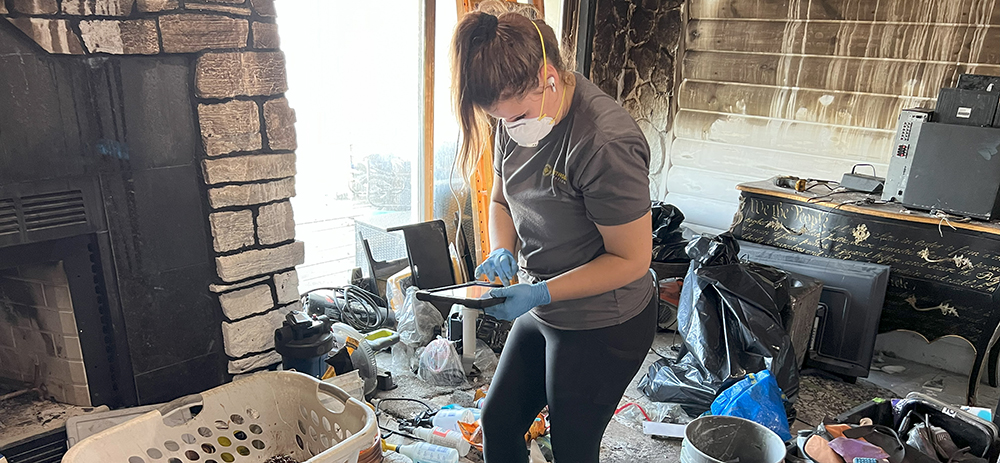
REPAIRING YOUR HOME
You ask how long it will be. The contractor says every house is different, but the process could take anywhere from six to 12 months or longer from start to finish; it will all depend on the extent of the scope of work. You gulp and ask why it takes so long. The contractor responds that it takes time for homeowners to make all the selections they need to make, all the fixtures, materials, and furnishings must be ordered, and the process of repair and reconstruction is what it is. He adds that usually there are back orders and that supply chain problems are hampering the industry. The contractor adds that you can speed up the process by making sure your selections are done quickly but cautions you. “Homeowners need to take their time and make sure they get what they want,” he explains. “This is not something you want to rush, and our experience is that people still have their lives to lead and have other commitments.
Fast forward some more. It’s weeks later. The adjuster and your contractor agreed on a scope of work and restoration efforts at your house are in full swing. The house has been demoed and most of your salvageable contents and furnishings are being cleaned, packed, and stored at the restoration contractor’s climate-controlled warehouse. The bad news is you and your wife are still deliberating over your selections. You will be doing some out-of-pocket remodeling and taking down a wall, but can’t seem to find all the right fixtures, appliances, and furnishing. With work, family, and social commitments it seems hard to find the time to look even though you are doing online shopping once you put the kids to bed.
CHANGES & FINAL TOUCHES
More weeks go by. You’ve finally agreed on selections but when the carpet arrives your contractor and you find out they shipped the wrong color lot. The contractor apologizes, but you realize there is nothing he can do about it. Stuff happens. You visit the house and things are progressing nicely. Paint colors can be very tricky. Entire walls look different than color cards, but your wife and you love everything but one room. You ask the contractor to repaint your bedroom with a different color. A change order is requested.
Months later things are now beginning to take shape. The appliances are fantastic, the new fixtures are exactly what you envisioned, and the flooring, including the reordered carpet, looks excellent. A sense of excitement builds. The workmanship is better than you expected, and the crew has been a delight to work with. They seem like friends now. Your belongings are scheduled to be delivered back to the house next week. Amazingly, there is no smoke smell, and everything has a fresh and new odor just as promised. Yes, you went over your budget for the upgrades and remodeling, but neither you nor your wife is complaining. The insurance settlement went smoothly, and your agent stood by you all the way.
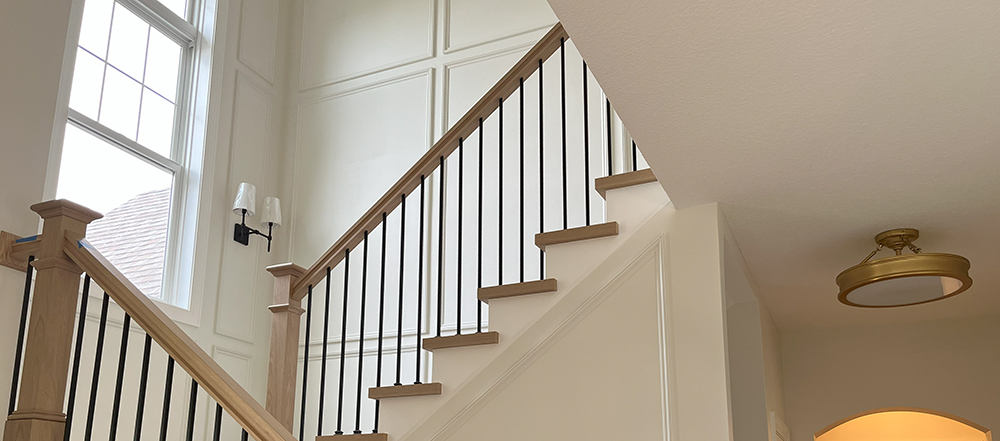
SATISFACTORY COMPLETION
Finally, you move back in. You’re both thrilled to be in your “new” house and everything is great, just like the contractor said it would be months ago. You throw a housewarming party and invite your agent and the contractor to the gala. Someone asks you about the process. You sigh and say, “It was a long time to be out of our home, but this was worth the wait.” Chuckling you quip: “I can’t, however, recommend fires for a reason to remodel. I’ll tell you one thing. Our bathroom exhaust fans will consistently be the cleanest in my neighborhood!”

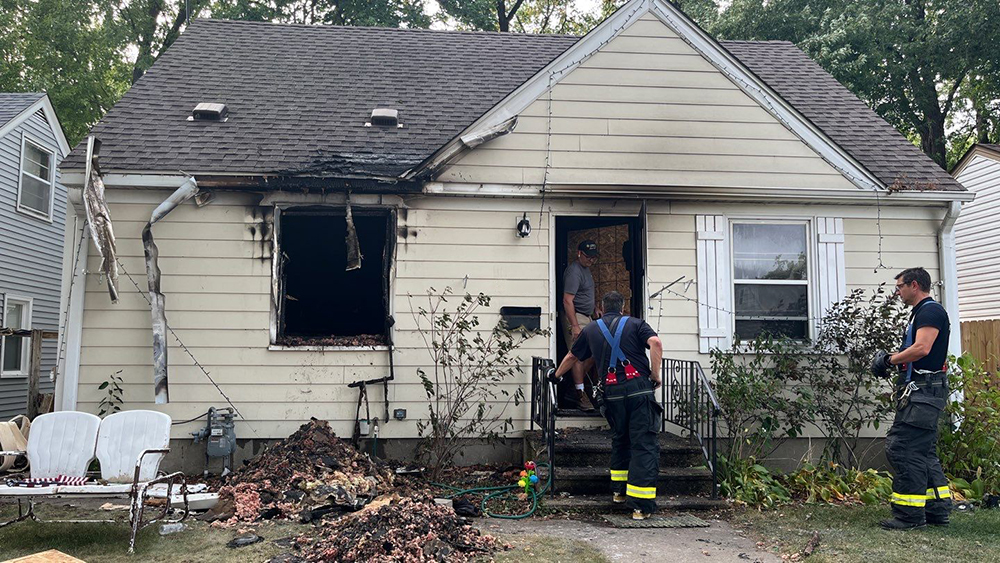
Leave a Reply